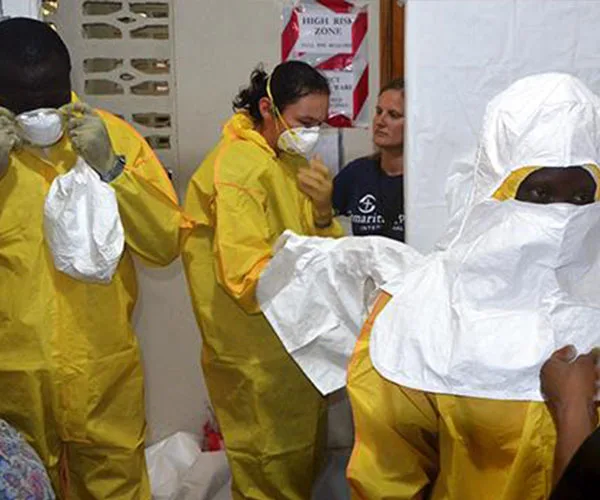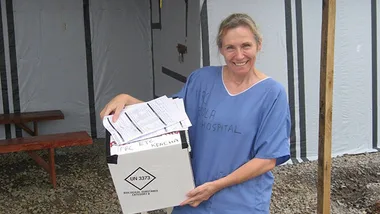When Ebola broke out in West Africa between 2014 and 2016, it rapidly became the deadliest manifestation of the disease. It killed five times more than any other Ebola outbreak combined, with conservative estimates that it took at least 11,315 lives across six countries and infected almost 30,000.
People across the world flocked to offer aid after it was declared an international public health emergency by the UN, but now the Red Cross has admitted around $6 million didn’t make it to those dying from the virus.
The Geneva-based International Federation of Red Cross and Red Crescent Societies (IFRC) said it was “outraged” and it would “ensure any staff involved are held to account” in a statement.
The organisation blamed the rush in which supplies and aid workers were bought after an initially slow international aid response as to why the money wasn’t tracked as closely as it should have been.
The IFRC said the operations “were among the most complex in recent humanitarian history”, with several groups spending tens of million on medical equipment and aid workers.
The loss of funds was attributed to a “likely collusion” between former IFRC employees and a bank, leading to a potential loss of $2.1 million.
In Guinea, overbilling and fake invoices by a provider of customs clearance service cost $1.2 million, with another two investigations underway.
In Liberia, the organisation said relief items and payroll costs were bought at inflated prices that cost around $2.7 million.
The organisation said it was “committed to holding all those involved in any form of fraud to account, and to reclaiming all misappropriated, diverted, or otherwise illegally taken funds”.
“These cases must not in any way diminish the tremendous courage and dedication of thousands of volunteers and staff during the Ebola response. They played a critical and widely recognized role in containing and ending the outbreak, and preventing further spread of the Ebola virus internationally,” said Dr. Jemilah Mahmood, the IFRC under secretary general for partnerships.



